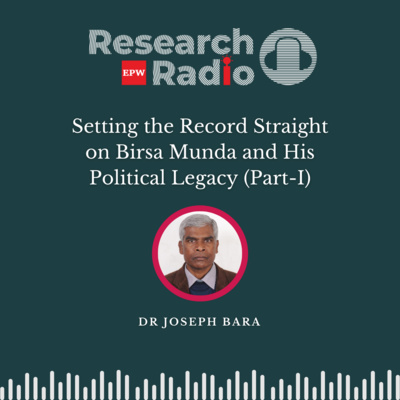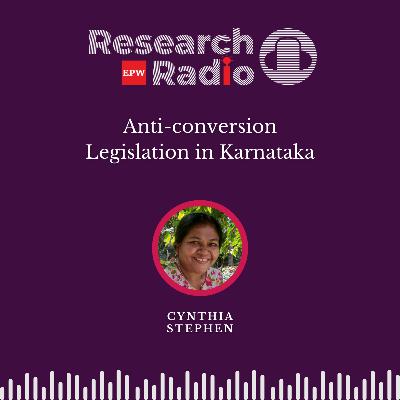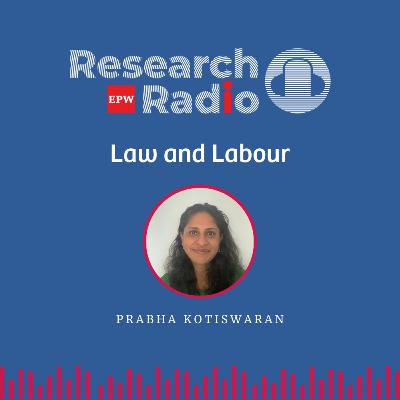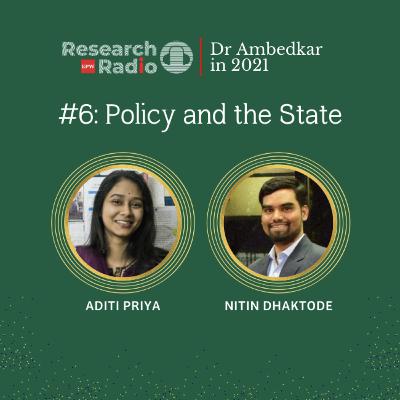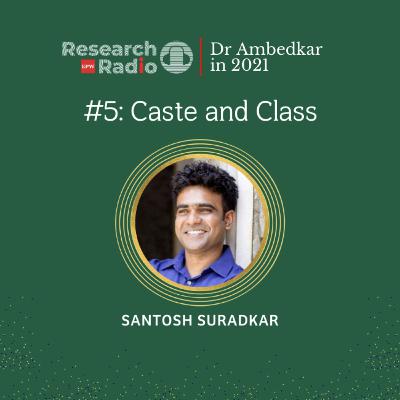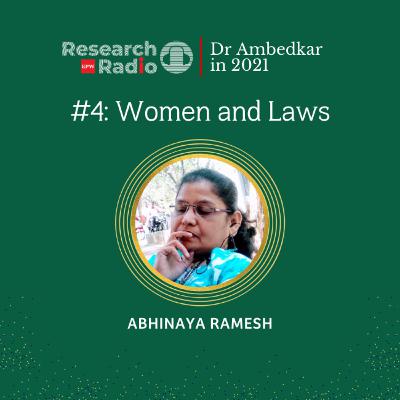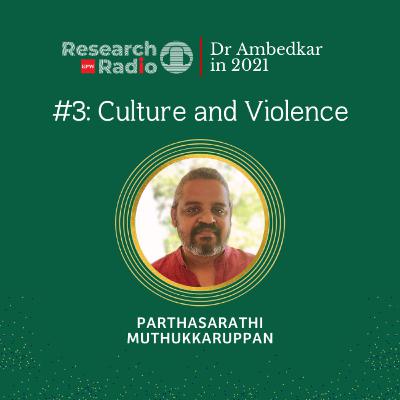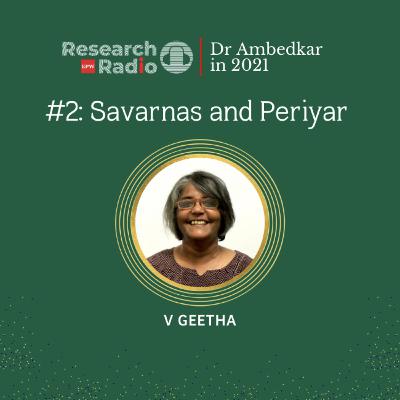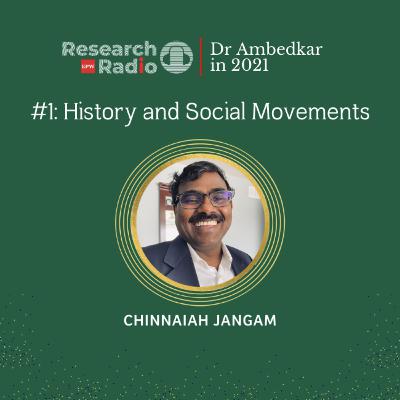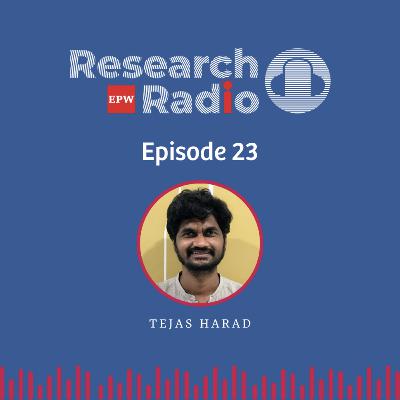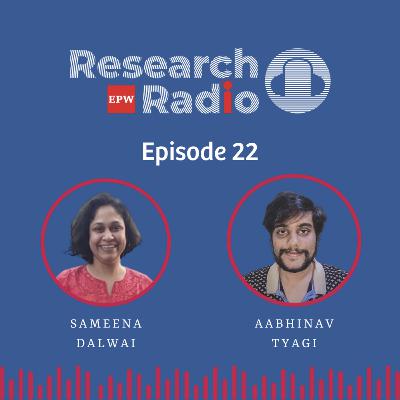Discover Research Radio
Research Radio

Research Radio
Author: Economic and Political Weekly
Subscribed: 108Played: 823Subscribe
Share
© Economic and Political Weekly
Description
Research Radio brings academic rigour to ask and address complex questions. Our show lets you learn directly from researchers who are at the forefront of their fields, investigating topics ranging from food security programmes to queer rights legislation.
61 Episodes
Reverse
In 2018, Prime Minister Narendra Modi launched an ambitious plan to achieve universal health coverage in India: by covering medical expenses upto Rs 5 lakh per family for one in every three Indians. The government called the scheme Ayushman Bharat and also promised to revamp the primary health care system alongside the insurance coverage.
How has the Ayushman Bharat scheme fared? Scholars Sylvia Karpagam and Shailender Kumar Hooda join us on the podcast to examine key aspects of the program. Dr Sylvia Karpagam is a public health doctor and researcher who is part of the Right to Food and Right to Health campaigns. She is specifically interested in the regulation of the private healthcare sector and in the social determinants of health, especially caste and nutrition. Dr Shailender Kumar Hooda teaches at the Institute for Studies in Industrial Development, New Delhi, India. He has over a decade of teaching and research experience with a specialization in the political economy of health and healthcare, health economics and policy, pharmaceutical industry, institutional economics and applied econometrics.
We will be discussing Hooda’s articles titled “Decoding Ayushman Bharat: A Political Economy Perspective” and “Health Insurance, Health Access and Financial Risk Protection.” We will be discussing Karpagam’s articles titled “Falling Through the Gaps: Women Accessing Care under Health Insurance Schemes in Karnataka” and “Critique of the Model of Universal Health Coverage in Karnataka.” Our Reading List contains insights from EPW's archive on the Ayushman Bharat.
Audio courtesy: YouTube/Narendra Modi
The FIRs filed to regulate the sale and consumption of alcohol follow a curious template in Madhya Pradesh, our guests from today’s episode found. An FIR is likely to begin with a tip from an anonymous informant. Police officers would then reach the “crime site” and find that the accused does not have the appropriate licence to sell liquor. On paper, the section they are charged under is about regulating the sale of alcohol. In practice, however, our guests for today’s episode identify how this type of FIRs and subsequent legal proceedings reveal how power and control operate in India.
Nikita Sonavane and Srujana Bej join us in this episode of Research Radio. We will be discussing their article titled Construction(s) of Female Criminality: Gender, Caste and State Violence. We recommend reading the two articles “The Anxious State” and “Death by Excise Policing: The Widening Web of Carcerality in India.” Their article was a part of a specially commissioned series of seven articles published in EPW Engage on the state of NT-DNT communities in India. Both researchers refer to the CPA Project's report "Drunk on Power: A Study of Excise Policing in Madhya Pradesh," which offers rich details and insights.
Nikita Sonavane is the co-founder of the Criminal Justice And Police Accountability Project (CPA Project) focused on building accountability against criminalisation of marginalised communities by the police and the criminal justice system. Srujana Bej is a lawyer and researcher with interests in spatial justice, the rights to food and education, and critical legal studies.
Although the role of Birsa Munda has been seminal in championing the Adivasi cause, his political movements and legacy have been distorted, like other prominent Indian historical figures, including B R Ambedkar and M K Gandhi. Despite misrepresentations, Birsa Munda and his politics continue to inspire not just Adivasis but also Dalits and other marginalised sections in their pursuit of attaining social justice.
Birsa Munda, a young freedom fighter and a tribal leader was born and raised in the tribal belt of Bihar and Jharkhand. Although he lived a very short span of life, Birsa managed to mobilise the tribal community against the British regime and he forced them to introduce laws to protect the land rights of the tribal community.
This podcast is based on the article “ Setting the Record Straight on Birsa Munda and His Political Legacy” which was authored by Dr Joseph Bara. The article was published in EPW journal on 25th July 2020.
Dr Bara is an independent scholar on tribal history and education in modern India and was formerly with Jawaharlal Nehru University, New Delhi. He is currently based in Ranchi.
This is part two of the podcast. You can find Part-I here.
Byju’s is likely to be the first name that pops into our heads when we think of the words online education and EdTech. While online education was once seen with doubt, Byju’s has reported consistent growth in users and the pandemic has given them a turbo boost. What are the implications of EdTech companies in changing how students learn and grow? What types of partnerships are EdTech companies forging to grow? How can technology be used to bring us closer to the ideal of education as a transformative force for progress, to spark innovation and to address inequity?
These are some of the questions that researcher Gurumurthy Kasinathan will help address. We will be discussing his articles "The Edtech Leviathan" and "Platform Capitalism and Edtech."
Gurumurthy Kasinathan is one of the founders of IT for Change. His areas of expertise include ICT integration in school education, teacher education and pre-service teacher education.
Opening excerpt courtesy: LearnIt
Although the role of Birsa Munda has been seminal in championing the Adivasi cause, his political movements and legacy have been distorted, like other prominent Indian historical figures, including B R Ambedkar and M K Gandhi. Despite misrepresentations, Birsa Munda and his politics continue to inspire not just Adivasis but also Dalits and other marginalised sections in their pursuit of attaining social justice.
Birsa Munda, a young freedom fighter and a tribal leader was born and raised in the tribal belt of Bihar and Jharkhand. Although he lived a very short span of life, Birsa managed to mobilise the tribal community against the British regime and he forced the crown to introduce laws to protect the land rights of the tribal community.
This podcast is based on the article “ Setting the Record Straight on Birsa Munda and His Political Legacy” which was authored by Dr Joseph Bara. The article was published in EPW journal on 25th July 2020.
Dr Bara is an independent scholar on tribal history and education in modern India and was formerly with Jawaharlal Nehru University, New Delhi. He is currently based in Ranchi.
This podcast is in two parts and this is the part one. Please make sure you listen to part two as well.
The recent Right to Freedom of Religion Bill, 2021, passed in the Karnataka legislative assembly that claims to combat conversion is a diabolical move by the government to provide legal cover to the majoritarian fundamentalist oppression against minorities.
This podcast is based on the article “Anti-conversion Legislation in Karnataka: BJP’s Responsible Governance or Descent in Communal Chaos?” which was published in EPW journal on 15th January, 2022.
Cynthia Stephen is an independent social policy researcher and analyst and independent journalist. She is also a well-known trainer on Gender, policy and Development issues. Her body of work includes leadership in several people’s initiatives for justice, in large country-wide women’s empowerment groups, and theoretical work on Women’s concerns from the unrecognised perspective of women and girls from a large number of marginalised sections in India.
The podcast has been conceptualised, recorded and edited by Rahul Bhise.
In 2012, the Comptroller and Auditor General of India reported in Parliament that the government inefficiently allocated coal blocks and caused a loss of revenue to the tune of Rs 1.8 lakh crore. The period from 2010 to the national elections in 2014 was when “the allocation of natural resources to mainstream economic sectors, especially mining, was politicised like never before.” What did this process of politicisation involve? How was it different from before? In what ways has environmental regulation changed since 2014?
These are some of the questions that researchers Dr Kanchi Kohli and Dr Manju Menon will help address. We will be discussing their EPW article titled “Narratives of Natural Resource Corruption and Environmental Regulatory Reforms in India.” Their article was a part of a specially commissioned series of five papers for EPW’s annual Review of Environment and Development.
Manju Menon is a senior fellow at CPR, where she undertakes research, writing and community projects on environmental justice and the politics of resource rights. Kanchi Kohli is a senior researcher at CPR. Her policy research and practice explore the links between law, development, sustainability and environmental justice.
Opening excerpt courtesy: NDTV/Govt regulator CAG tables report on coal, Delhi airport
Marathi poet Namdeo Dhasal challenged Brahminical literature and sought to reconstruct a caste-less society through his works.
This podcast is based on the article Namdeo Dhasal’s new language that was published in EPW journal on 27th October, 2018.
Yogesh is a poet, columnist, writer and founder of Panther’s Paw Publication. He is also a PhD scholar at the Tata Institute of Social Sciences. He is studying the History of Ambedkarite Shahiri in Maharashtra.
January 15 is marked as the death anniversary of Poet extraordinaire Namdeo Dhasal, and EPW pays homage to him with this feature.
The podcast has been conceptualised, recorded and edited by Rahul Bhise.
Gail Omvedt has published more than 50 articles in EPW. This includes sharp book reviews, innovative research work and critical responses to articles published in the journal. After her death, EPW published reflective articles to understand her contributions. To take this a step further, and to commemorate her legacy, we felt that it could be useful to take a behind-the-scenes look at her research process, how her work is taught within a classroom setting and critical reflections about her scholarship.
Dr Umesh Bagade and Dr Sangita Thosar join us on the podcast to share their insights based on extensive experience teaching Omvedt’s work and knowledge about anti-caste and feminist movements in Maharashtra. Our reading list charts the growth of her scholarship. We discuss Dr Omvedt’s articles titled “Jotirao Phule and the Ideology of Social Revolution in India,” “Development of the Maharashtrian Class Structure, 1818 to 1931,” and “Non-Brahmans and Nationalists in Poona”
Umesh R Bagade is a professor at Babasaheb Ambedkar Marathwada University, Aurangabad. His research and teaching interests include the history of anti-caste movements, the intellectual and social history of modern Maharashtra, historiography, studies of caste economy and history of caste gender consciousness. Sangita Thosar is an assistant professor at the Advanced Center for Women’s Studies at Tata Institute of Social Sciences, Mumbai. Her research and teaching interest include caste and gender, women’s role in various social movements, questions of citizenship and the rights of Dalit–Adivasi women.
In their bid to maintain political visibility, various factions of the Republican Party of India have struck up alliances with "secular" and "non-secular" parties. They have not adequately utilised the progressive undercurrents of the Dalit consciousness to connect with other deprived communities to form a dynamic coalition.
This podcast is based on the article Dalit Politics in Maharashtra that was published in EPW journal on 21st April 2012. This article is authored by Dr Harish S Wankhede. Dr Wankhede is an Assistant Professor at the Centre for Political Studies at JNU, New Delhi. He has written about caste, Dalit movement, Dalit Politics in the states of Maharashtra and Uttar Pradesh. He specialises in Political Theory, Public Institutions, Secularism and Social Justice and Cinema.
Women spend more than three times as much time performing unpaid domestic work than men in India based on 2019 NSSO data. This means women get less time to pursue paid work, learn new skills, get rest, and more. This disproportionate division of labour remains unrecognised. Indian courts, however, have attempted to value women’s unpaid domestic work in cases where women have died or become disabled in motor accidents.
Dr Prabha Kotiswaran has analysed hundreds of such cases since the 1960s. She joins us on the podcast to discuss her findings. Dr Kotiswaran is a Professor of Law and Social Justice at King’s College London. She is currently working on a multi-year project titled “Laws of Social Reproduction” and is an advisory member of EPW’s Review of Women’s Studies. We recommend reading the following related articles as well: “What Does Work-From-Home Mean for Women?” “Estimating Unpaid Care Work: Methodological Issues in Time Use Surveys” and “'Wages for Housework' for Indian Society and Digitalising Economy”
Dr B R Ambedkar has written extensively about economics and development. Along with proposing landmark legislations, he was also attentive to the impact of policies on those from marginalised castes and on women. Our guests will examine the policy landscape in and focus on two landmark programmes— the National Food Security Act’s provisions for maternity entitlements and the National Rural Employment Guarantee Act—and whether they actualise Ambedkar’s vision of a democratic socialist India.
Nitin Dhaktode and Aditi Priya join us on Research Radio. Nitin is a senior doctoral research scholar at the School of Development Studies, Tata Institute of Social Sciences, Mumbai. He has also worked with social audit units for over three and a half years in Hyderabad and across India. Aditi Priya is a research associate at LEAD at Krea University, Sricity. She started the group Bahujan Economists. Her research interests include maternity entitlements, maternal and child health and gender-based violence and the role of the police.
We will discuss Aditi’s article “Birth Pangs: Universal Maternity Entitlements in India” and Nitin’s article “Caste in MGNREGA Works and Social Audits.”
Audio courtesy: Summertime by Tokyo Music Walker https://soundcloud.com/user-356546060 [CC BY 3.0]
What does it take to build unity among the working class? We'll explore how Dr Ambedkar led movements in the Konkan region against khots, or landlords, who gave unfair remunerations to tenants, and in the Bombay Presidency in favour of garnering humane working conditions for the working class, including mill workers.
Santosh Suradkar is our guest for this week. Dr Suradkar teaches at the Department of History, Gondwana University, Gadchiroli. His research areas include peasant, labour, caste and Dalit history. We will discuss his EPW article “Mukti Kon Pathe? Caste and Class in Ambedkar’s Struggle.”
Audio courtesy: Summertime by Tokyo Music Walker https://soundcloud.com/user-356546060 [CC BY 3.0]
What steps did Ambedkar take to counter patriarchy and the caste-based order? Why should laws specifically consider caste in addressing incidents of violence? What role have upper-caste women played in furthering the women's movement in India?
These are a few of the questions that Abhinaya Ramesh explores on this week's episode of Research Radio. Professor Ramesh is a political scientist, feminist theorist and human rights scholar. She was awarded the British Chevening fellowship and is currently based in Mumbai. Professor Ramesh’s interests include citizen’s rights and their implementation in India, India’s political system and western political thought.
We’ll discuss her articles “Dalit Women, Vulnerabilities, and Feminist Consciousness” and “Reflections on the 'Chalo Nagpur' Campaign.”
Audio courtesy: Summertime by Tokyo Music Walker https://soundcloud.com/user-356546060 [CC BY 3.0]
What are the implications of studying Dr Ambedkar’s texts in an Indian public university? What are the multiple forms of violence that caste thrives on, and how are these contested? What is the importance of naming, particularly the use of the terms "Harijan," "Scheduled Caste" and "Dalit"?
These are a few of the questions that Parthasarathi Muthukkaruppan explores on this week's episode of Research Radio. Dr Muthukkaruppan teaches in the Department of Cultural Studies, English and Foreign Languages University, Hyderabad. His research interests include cultural theory, literature, cinema, visual culture and continental philosophy.
We will discuss his EPW article “Paramakudi Violence: Against Dalits, Against Politics." We will also explore his articles “Critique of Caste Violence” and “Dalit: the making of a political subject” published in Social Scientist and Critical Quarterly respectively.
Audio courtesy: Summertime by Tokyo Music Walker https://soundcloud.com/user-356546060 [CC BY 3.0]
Thanthai Periyar and B R Ambedkar shared several similarities in their analysis of Indian society. However, they held different views on the nation-state, and women's sexuality, among other areas. V Geetha joins us to discuss Dr Ambedkar and Periyar's thought. She also details Dr Ambedkar's views on fraternity, political change, Savarnas, the law. Dr Geetha is a feminist historian and translator who writes in English and Tamil on gender, caste, education and labour. She has worked on the Tamil on-brahmin and anti-caste movements, and on feminist practices in the Indian context.
She has published several articles in EPW, and we’ll focus on two today: "Of Whales and Wheels: Buddhist Lessons in Democracy" and "Invitation to Practise Social Fellowship." Also, read Geetha's article "Ambedkar and Periyar’s intellectual comradeship," which was published by Forward Press.
Audio courtesy: Summertime by Tokyo Music Walker https://soundcloud.com/user-356546060 [CC BY 3.0]
Welcome to the first part of our new Research Radio special programme. This series will focus on Dr B R Ambedkar, and his mission of achieving “Liberty, Equality and Fraternity.” For the next two months, every Wednesday, we’ll learn about Dr Ambedkar’s thoughts and actions from scholars across disciplines— from history, to literary studies and economics. Through this series, we hope to get closer to the multidisciplinary approach through which Dr Ambedkar viewed Indian society. Most episodes will offer deep dives into his views on Marxism, Buddhism, Brahminism, patriarchy, the Indian state, and his engagement with Periyar, Jotirao Phule, and others. A handful of episodes will analyse work by scholars who have followed an Ambedkar-inspired approach in their scholarship.
To start us off Chinnaiah Jangam joins us. Dr Jangam is an Associate Professor in the Department of History. His research focus is on the social and intellectual history of Dalits in modern South Asia. He’s published several articles in EPW that employ innovative archival research methods. Here are two that we discuss in this episode: “Dalit Chronicles from the Telugu Country” and “Politics of Identity and the Project of Writing: a A Dalit Critique.”
Audio courtesy: Summertime by Tokyo Music Walker https://soundcloud.com/user-356546060 [CC BY 3.0]
From academic writing to social media, Dr Ambedkar’s scholarship and actions are receiving renewed attention due to the efforts by Dalit-Bahujan scholars and thinkers. This special programme produced by EPW is one specific example of this.
Our guest today has been writing on Dr Ambedkar for several decades, and has more recently focused on frameworks on how to read Ambedkar. Professor Gopal Guru is currently the editor of EPW, and was formerly professor at the Centre for Political Studies at Jawaharlal Nehru University, Delhi.
We will be discussing several works including “Ethics of Reading Ambedkar’s Text” and Guru's lecture at the English and Foreign Languages University from 2017, which was documented by the publication Dalit Camera.
Audio courtesy: Summertime by Tokyo Music Walker https://soundcloud.com/user-356546060 [CC BY 3.0]
"Hindu culture and the caste system," writes Gail Omvedt in her EPW article on Jotirao Phule in 1971 "rested upon Brahmanism; hence Phule, who aimed for the complete destruction of caste, superstition and inequality within Indian tradition, linked his thought with a movement of opposition to the Brahman elite." On Phule’s birth anniversary, we’ll discuss his writing on caste, class, and gender relations in South Asia and importantly, the methods he used to counter Brahmanism and patriarchy in collaboration with his co-traveller and wife Savitribai Phule.
Tejas Harad joins us on Research Radio to discuss his engagement and research primarily on Jotirao Phule. Tejas has worked at EPW since 2013 as a copy-editor and regularly contributes to multiple news publications in his individual capacity. We will also partially focus on Savitribai Phule, but this episode does not cover the depth of her work. Last year, Tejas started a bilingual journal called the Satyashodhak to make the Satyashodhak Samaj archive more accessible to people but the portal's focus is not limited to that, in his words.
A few articles on the Jotirao Phule and related topics:
Jotirao Phule and the Ideology of Social Revolution in India, Gail Omvedt, 1971
Education as Trutiya Ratna: Towards Phule-Ambedkarite Feminist Pedagogical Practice, Sharmila Rege, 2010
Liberating Jyotiba Phule, Gopal Guru, 2003
Remembering Jotiba Phule, the Mahatma Who Fought Against Brahmin Hegemony, Tejas Harad, 2018
Varna System in the Dharmasutras, Tejas Harad, 2020
Audio courtesy: The last ones by Jahzzar [CC BY-SA 3.0].
Debates over caste-based reservations in India consistently make front-page news. Dominant political parties and the judiciary perform vital roles in ensuring the implementation of this measure to address historic and enduring injustices, social exclusion, and deep-seated inequality in favour of Savarna castes in India. How well has the judiciary fared in ensuring that reservations are implemented?
This week on Research Radio, Sameena Dalwai and Aabhinav Tyagi join us to discuss their work on the Indian judiciary and reservations. Dr Dalwai is with the Jindal Global Law School, Sonipat. She writes in Marathi and English on caste, gender, sexuality, cultural nationalism, and the law. Aabhinav teaches political science at Scottish International School, Shamli. He hosts a new podcast called “The Gobarment.” We’ll be discussing their EPW article titled “Impact of Uttarakhand's Reservation Judgment on Women.” This episode was recorded in July 2020 and, therefore, does not comment on recent developments on reservations.
Audio courtesy: The last ones by Jahzzar [CC BY-SA 3.0].






